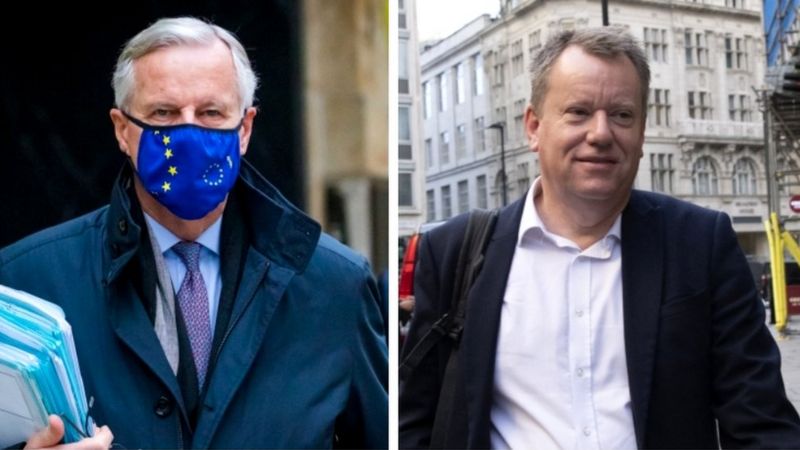Brexit talks; Has US election slowed down trade negotiations?

Have the US elections really influenced Brexit talks?
Some say the UK slammed on the brakes in negotiations this week, as the government hedged its bets on who would end
up in the White House.
Not so, say UK government sources.
That's not the impression we have, say EU voices close to the talks.
Trump or Biden?
Clearly, a no-deal situation with the EU would be a bit easier for the government to sell in the short term with
Donald Trump in the White House. While a trade deal with the US is proving (unsurprisingly) tough for the UK to negotiate,
Mr Trump could probably be relied on to make some very positive noises.
Joe Biden, unlike President Trump, has had no contact with the prime minister, warm or otherwise. Relations with the UK,
while of interest, would arguably be pretty far down his list of immediate presidential priorities.
With his roots in Ireland, Mr Biden would also likely support US lawmakers who've insisted the Irish protocol contained
in last year's Brexit divorce deal must be fully respected. This is because of its importance in maintaining an open border
on the island of Ireland and, by extension, in safeguarding the Northern Ireland peace process.
In September, just after the UK government introduced the Internal Market Bill which had provisions to override parts of
the Irish protocol, the influential Speaker in the US House of Representatives, Nancy Pelosi, said the UK could forget
a trade deal with the US, if it did anything to undermine the peace process.
The UK government has defended the clauses in the Bill, calling them a safety net, but the stance of a significant section
of US lawmakers is unlikely to shift with these elections.
Why did pace drop off?
Despite this, the UK insists the slow-down in negotiations with the EU this week were fully independent of the drama
unfolding in the US.
Apart from anything else, the UK is not displaying signs of wanting to pursue a no-deal strategy. Of course anything
is possible but, if that had been the plan, why return to the talks at all after the prime minister's very public walk-away
last month?
Understanding what happened this week - as always - depends who you speak to.
No-one denies the pace of talks dropped off. Or that big gaps remain on the three naggingly outstanding points of
divergence: fishing rights, competition regulations and how a trade deal would be governed.
'UK mandate is clear'
Sources speak instead of the "natural ebb and flow" of negotiations and insist the UK has continued to play a constructive
role in talks.
"The thing is, the EU only describes negotiations as constructive when we are agreeing with them," noted one UK contact
wryly. "Obviously, we're not always going to do that. The UK mandate is clear."
It's important to note that trade talks have not broken down altogether this week.
They continue at a technical level on Thursday and Friday, though you could question the value of this.
As I've often noted in this blog, high-level political input rather than more technical discussions are needed, to sign off
on the difficult compromises required of both sides to get a deal done.
You can follow the details of this story here. : slotxo
Отредактировано lily9889 (2020-11-06 07:26:50)
